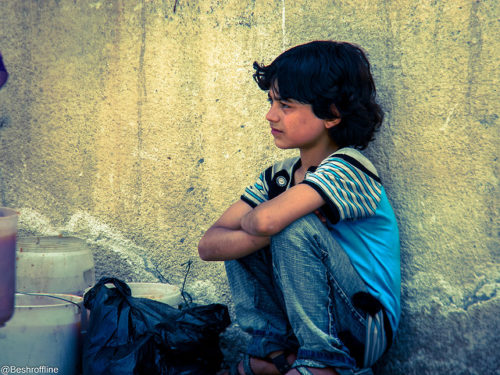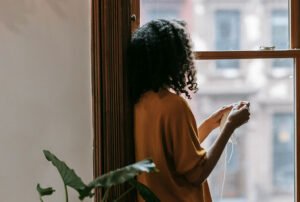
March 22, 2017; Devex
Writing for the development community’s media platform, Devex, about the emergency education and psychosocial needs of refugee children, the power of Elizabeth Dickinson’s words reminds us that President Trump’s latest angry tweets are becoming less and less worthy of our attention.
Sabine speaks deliberately, elevating her voice above those of her pupils at a tented school in Northern Iraq. The 13-year-old wants to talk about why she wasn’t in class the past two years. The Islamic State took over her home village of Talabta in 2014. They occupied the school, threw out the Iraqi curriculum, and instituted their own. Sabine was in 6th grade at the time. She’s still in 6th grade now.
According to Education Cannot Wait, there are currently more than 75 million children and young people presently out of school in 35 war-torn countries. Less than two percent of humanitarian aid dollars are earmarked for education. Girls are 2.5 times more likely to be out of school than boys.
There are approximately 2.25 million Syrian children currently out of school. While the horrific crisis in Aleppo has captured most of our attention, children throughout the country have experienced staggering levels of trauma and distress. For the 3 million Syrian children under the age of six who have only known war, their dispossession is absolute. Save the Children’s report “Invisible Wounds” addresses the mental health needs of Syrian children enduring six years of a brutal civil war. A teacher in the besieged town of Madaya offers this assessment:
The children are psychologically crushed and tired. When we do activities like singing with them, they don’t respond at all. They don’t laugh like they would normally. They draw images of children being butchered in the war, or tanks, or the siege and the lack of food.
Sign up for our free newsletters
Subscribe to NPQ's newsletters to have our top stories delivered directly to your inbox.
By signing up, you agree to our privacy policy and terms of use, and to receive messages from NPQ and our partners.
Dickinson reports that the delivery of education for these children needs to adjust to their extreme circumstances. “Psychosocial support is now the key component of education in emergencies.” One simple objective is to simply help children feel like children again. Dickinson asserts that these children are resilient and that if they can be reached in time, aid organizations can save them from their living nightmare.
Emergency education first treats the traumatized children’s psychological needs. Then, more formal schooling can take place. Eventually, children find their way out of tents and into temporary school facilities that may have desks and chalkboards. At this point, the aid organizations engage the country’s educational system to sanction the educational progress the children are beginning to make. Some NGOs operate accelerated learning programs. The final, hopeful stage is for as many children as possible to return to their homes.
The unrest in Syria began 2011. Encouraged by the Arab Spring protests, discontent with the authoritarian government of President Bashar al-Assad escalated into an armed conflict once protesters called for his removal. Writing for the New Yorker in November 2011, Amy Davidson’s concluding words still speak to us today.
Dictatorships survive by degrading; they fall when they strike some core of dignity that they can’t break. In Tunisia, that happened after a vegetable-seller’s self-immolation in the face of a humiliating demand for a bribe. This spring in Syria, as the U.N. report noted, “peaceful protests erupted in Dar’a in response to the detention and torture of a group of children accused of painting anti-Government graffiti on public buildings.” The upheaval in Syria began not with an adult who set himself on fire, but with children who saw a wall as something other than confining, and painted pictures on it.
—James Schaffer













